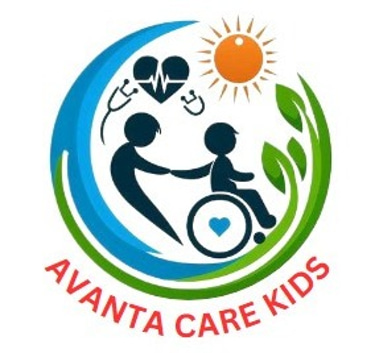The Silent Signs: Spotting Early Developmental Delays Before They Become Challenges
Many developmental challenges in children can be addressed early—if we know what to look for. Avanta Kids trains parents to notice subtle signs like delayed speech, unsteady motor skills, or lack of eye contact. Our experts offer early screenings and personalized support, turning potential hurdles into stepping stones for growth. Because every child deserves the best start possible.
8/9/20255 min read


Understanding Developmental Delays
Developmental delays refer to a noticeable lag in a child’s progress in acquiring certain skills compared to their peers. These delays can affect various domains, including motor skills, language development, cognitive abilities, and social interactions. While each child is unique and may develop at different rates, consistent delays can be indicative of underlying issues that require attention. Identifying these issues early is crucial, as delays can have long-term impacts on a child's overall growth and learning capabilities.
There are numerous types of developmental delays. For instance, motor delays may manifest in a child’s difficulty with coordination or fine motor skills. Language delays can hinder a child's ability to communicate effectively, while cognitive delays may affect learning and problem-solving skills. Social or emotional delays can lead to challenges in interactions with peers and adults, complicating the child’s social development. Recognizing the signs associated with these delays can facilitate early intervention, which often leads to more favorable developmental outcomes.
Statistics indicate that approximately 1 in 6 children in the United States is diagnosed with a developmental delay. This prevalence underscores the necessity for parents and caregivers to be vigilant and aware of critical developmental milestones such as babbling by six months, walking by 12 months, and forming sentences by two years. These milestones provide a framework to assess whether a child is on track. If a child shows significant deviation from these expectations, timely assessment and intervention can help mitigate future challenges and support healthy development.
In sum, being aware of developmental delays and their signs is paramount for caregivers and educators alike. Early detection and intervention not only promote better outcomes but also empower children to reach their full potential in both learning and social environments.
Common Signs of Developmental Delays
Identifying the early signs of developmental delays is crucial in ensuring that children receive the necessary support. Developmental delays can manifest in various areas, including speech and language, motor skills, social interactions, and cognitive abilities. Recognizing these subtle indicators may help parents address potential challenges before they escalate.
One common sign of delay in speech and language skills is a limited vocabulary compared to peers. For instance, while a typical two-year-old may use around 50 words, some children may only use ten or even fewer. Additionally, if a child struggles to form simple sentences or has difficulty being understood by others, it might signal a delay. Parents can enhance their child’s speech development by engaging in regular conversation, reading together, and encouraging verbal expression.
Delays in motor skills can be observed through clumsiness or an inability to perform age-appropriate physical tasks. For example, a five-year-old should be able to catch a ball or run without tripping. If a child frequently struggles with these tasks or avoids physical play, they might be experiencing motor delays. Encouraging physical activity and offering opportunities to practice these skills can help foster improvement.
In social interactions, a significant sign of delay may be difficulty in forming relationships with peers. A child who appears disinterested in playing with others or is unable to engage in cooperative play might be experiencing a delay in social skills. Parents should observe their child’s ability to share, take turns, and express emotions appropriately in various settings.
Lastly, delays in cognitive abilities may present as challenges in problem-solving or following instructions. A child who struggles with basic tasks, such as sorting colors or shapes, may require additional support. Engaging children in puzzles or age-appropriate games can promote cognitive development and assess their problem-solving skills.
By observing these signs, parents can take proactive steps to ensure that their children receive the early interventions needed to support their developmental journey.
The Importance of Early Screening and Intervention
Early screening and intervention play a pivotal role in ensuring that children with developmental delays receive the necessary support to thrive. The importance of identifying developmental challenges during the formative years cannot be overstated, as early detection can make a significant difference in a child’s long-term development. By addressing potential issues promptly, families can access personalized resources and tailored strategies that effectively cater to their child's unique needs.
Screening processes generally involve comprehensive evaluations performed by pediatricians or specialized professionals. During these assessments, parents can expect a variety of tools and methods designed to gauge their child’s developmental milestones. These evaluations may include standardized tests, observations, and interviews with caregivers to better understand the child's behavior, communication skills, motor functions, and social interactions. The goal here is to create a complete picture of the child's abilities and areas that may require support.
The involvement of parents and caregivers is crucial in navigating the early screening process. Advocating for a child’s needs can make a significant impact in ensuring timely access to services. Parents must feel empowered to voice their concerns and seek clarification about the assessment outcomes, intervention strategies, and available resources. Effective communication between families and healthcare providers fosters a collaborative environment, which enhances the chances of successful intervention.
As such, the advantages of early screening and intervention extend beyond immediate support. They lay the groundwork for ongoing developmental progress and well-being, facilitating gradual improvements in cognitive, emotional, and physical aspects of a child's life. By prioritizing early detection and intervention strategies, parents can help combat potential barriers, enabling their children to reach their fullest potential and ultimately build a brighter future.
Resources for Parents Seeking Support
Parents who are navigating the complexities of childhood development have numerous resources available to them. Seeking support early can be pivotal in addressing developmental delays and ensuring that children receive the assistance they need to thrive. One of the most valuable resources is the American Academy of Pediatrics, which provides a wealth of information about children's health and wellness, including developmental milestones and red flags that may indicate the need for further evaluation.
In addition to national organizations, parents can benefit from local resources. Many communities offer early intervention programs through their local school systems, which can provide free or low-cost assessments and services for children under the age of three. Connect with your local Department of Health or Special Education office to discover the specific resources available in your area.
Online platforms such as Zero to Three and CDC’s Learn the Signs. Act Early. initiative equip parents with the tools and knowledge necessary to monitor their child's developmental progress. They also offer guidance on how to approach conversations with healthcare providers regarding concerns about development.
Support groups, both in-person and online, can be invaluable for parents. Organizations like Parent to Parent USA and local chapters of Autism Society provide families with networking opportunities, educational workshops, and emotional support from other parents facing similar challenges. Peer support is essential, as it fosters a sense of community and understanding among parents within the same journey.
In conclusion, actively seeking assistance and utilizing available resources is vital for parents who may have concerns regarding their child’s development. By connecting with professionals, engaging in community support, and accessing educational materials, parents can better advocate for their children and facilitate their growth and development.
Contacts
844-228-4441
info@avanta.care
Subscribe to our newsletter
Servicing
All of Georgia
All of Florida
All of Maine
All of South Carolina
All of Vermont.
